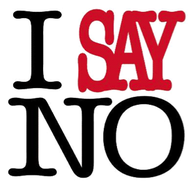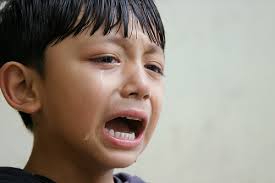 “You’re the worst mom ever!” “You never let me do anything!” “I hate you!” Ever heard those phrases or something similar? I do at least twice a week. Last week my three year old even said it. While I don’t actually like hearing those phrases (and my kids receive a consequence for saying hate), I do feel I am doing something right when they say it because they don’t get their way all the time. I hear adults complaining often that kids don’t respect anyone anymore and that they are too coddled. I think in many cases this is true and it’s all our (the adults) fault. I’m not trying to shift blame away from adolescents but many are not taught how to handle hearing no or that it is okay for others to correct them. I heard a story this week where a kid used a secretary’s phone without asking to call his mom. When the secretary politely told him that he was not supposed to be using that phone, the kid handed her the phone and his mom proceeded to yell at the secretary for telling him that. What?!!! I also regularly see adults allow children to treat them badly. Let me explain. My kids are, shall we say, rambunctious. At times they run around when they shouldn’t and bump into people. I apologize and then ask my child to apologize. Most of the time the adult says “Oh that’s okay” and doesn’t wait to hear the apology. I want my kid to apologize! I want them to understand that their behavior was not okay in that setting and that they need to be held accountable. How will they ever learn to be polite and respectful if no one enforces it? We need to make a collective change. As an adult we are told no sometimes or corrected. That’s life. Kids need to learn this lesson in order to be successful. I have a few suggestions. 1. It’s okay if your kid doesn’t have everything they want or get to do everything they want. Limiting things are good for them. If they fuss, you have some options. Help them find something else to do. If they don’t want one of your fun suggestions, scrubbing the floor is always an option. ;) 2. You can tell kids who are at your house no or correct them. When it’s your house (or car or outing), it’s your rules. For example, I correct kids at my house who use words I don’t allow. If they continue, they have to go home. I’m not mean or judgmental about it. I simply ask them not to use that word at my house. If they continue, I let them know that if it continues they will have to go home. 3. I am huge believer in Love and Logic. Offering choices that you are okay with no matter which is picked is great. If gives kids some power while you still have input. If they don’t want to pick from the choices you give, bummer then you get to pick. 4. When your kids do get mad and tell you that you are mean, try your hardest to not take it personally. They want you to change your mind so they are pulling on your heartstrings. I don’t respond at all when they do this or I ask them to go cool off. Sometimes I have to walk away. I come back later when we are all calmed down and address what happened. That is when I give consequences if any are needed (as I said before hate is a big no-no in my house). I’ll end with a request. Please let my kids (and others) apologize when they do wrong and don’t dismiss whatever happened as no big deal. You’re not the bad guy by letting them do this!
0 Comments
 Something bad has happened in your child’s life. Maybe a friend acted rude to him, maybe something he was looking forward to fell through, or maybe he received a consequence from you. When something happens in your kid’s life and they feel mad or sad, what should we do? And what should we allow them to do? I feel that often kids’ feelings are overlooked. Adults tell them to “move on” or “that happens to everyone.” This minimizes how your kid feels. Try these tips instead: 1. Acknowledge how he feels. “I’m sorry your friend hurt your feelings. That stinks.” 2. Let him know it is okay to be sad for a little while. Suggest that he spend time doing something to express his feelings in a safe way. Drawing, listening to music, writing, running, etc. 3. If he is really feeling upset, I suggest throwing a little pity party. A pity party is where your kid can cry or yell by himself. Allow him the space to really feel his feelings. (NOTE: if your child has been known to self-harm or attempt suicide, participate in the pity party with him. He should NOT be left alone.) I suggest places such as the bathroom or bedroom. Ask your child to set his own time limit on how long his pity party will last but no longer than thirty minutes. Then your kid should do suggestion #2. Find a safe way to let out any feelings still unresolved. 4. Have your kid do something he enjoys and that usually makes him happy. Maybe talking to a friend, watching a favorite show, taking a bath, dancing, etc This may need to be repeated a few times depending on the situation. |
JENNIFER EULBERG, MA, LPCWelcome Jennifer, our new blogger!
Jennifer is a counselor at Sandhill who specializes in depression, self-esteem, and grief & loss. Get to know Jennifer as she shares her perspectives on life, contemplates value themes, and offers gentle encouragement. THANK YOU to Stefanie Pisarkiewicz, LPC for her blog contributions from November 2014 - February 2019! Archives
May 2024
Categories |
|
CALL TO SCHEDULE AN APPOINTMENT
636-379-1779 |
|
Locations:
801 S. Woodlawn Avenue, Suite 15, O'Fallon, MO 63366 13303 Tesson Ferry Road, Suite 50, St. Louis, MO 63128 Email: [email protected] Phone: 636-379-1779 • Fax: 636-634-3496 |
